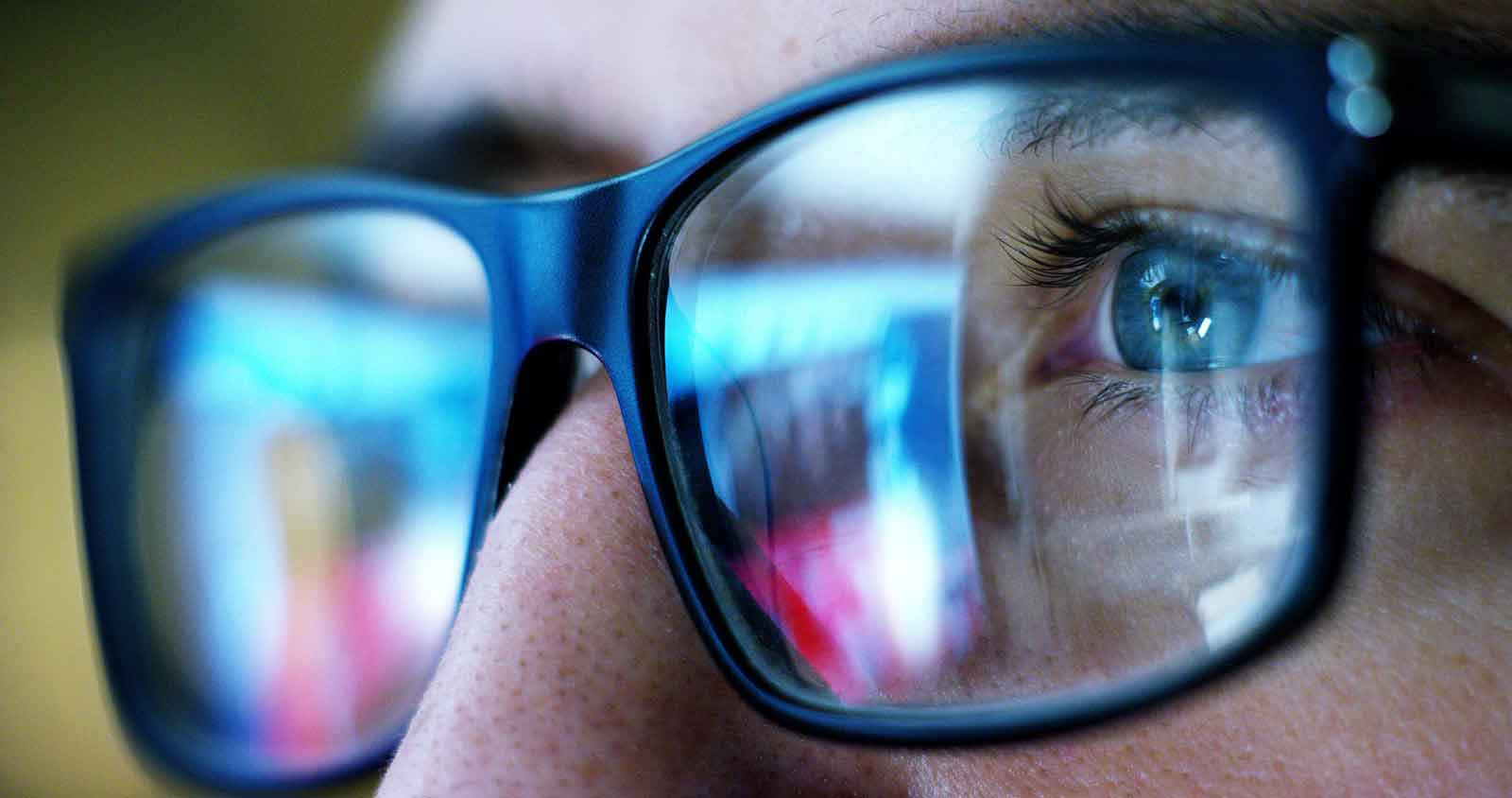
What You Need To Know About Blue Light
WRITTEN BY KRISTINA TELHAMI AND DR. SWATHI
What is blue light?
If you’re reading this, the device you are using right now is probably emitting some blue light. Blue light is part of the visible light spectrum, and is considered about a third of all visible light. There are both natural and artificial sources of blue light (5). For example, sunlight is natural blue light, whereas fluorescent light, LEDs, computer monitors, and smartphones are artificial sources of blue (6). However, humans are constantly exposed to blue light because of the technology around us. We use phones daily, stare at computer screens at work or school, and watch shows on our television (5).
Why should we worry about blue light?
There can be health benefits to some blue light, such as from the sun. Sunlight boosts our mood, helps with memory and cognition, as well as regulates our body’s circadian rhythm (5). This affects our body’s natural sleep and wake cycle, meaning exposing ourselves to sunlight in the morning can help wake us up. When the sun goes down at night, our body then knows it is times for bed (1).
This is why it is crucial to get sunlight first thing in the morning in order to regulate your sleep. Too much artificial blue light exposure can negatively affect your health. When you are staring at a screen all day long and especially at night, it can mess with your body’s circadian rhythm. Your body will not be able to understand if it’s ready for bed at night. Sleep is needed for optimal health so our bodies can heal and reset. The fake blue light will tell our body to stop releasing melatonin, which is crucial for good sleep (2).
How can blue light affect hunger?
Blue light not only influences your sleep, but can lead to hunger imbalances. One study done in 2019 investigated the effects of using blue light and leptin production. Leptin is a hormone that is released from fat cells in the adipose tissues and affects hunger levels. The study found that using technology with artificial blue light actually resulted in moderate suppression of leptin levels and impaired sleep quantity (3). With lower leptin levels, there is no signal that tells our body whether it is full or not after meals. This can cause us to unknowingly eat more than our body needs which could lead to weight gain.
When constantly staring at computers and other blight-light screens in general, your eyes can be impacted due to less blinking. This puts more strain on the eyes and causes symptoms such as dry eyes, headaches, tired eyes, and even eye twitches (4).
How can we protect ourselves from blue light?
Your computer screen or your phone might have a feature where it will remove blue light when the sun goes down at night. For example, Apple iPhones and iPads have a “Night Shift” feature! You can even get blue-light blocking filters for your phone, tablet and computer screens. This will really help prevent as much of the blue light as possible. Other things you can do is avoid blue light at night with blue light blocking glasses or a screen protector (6). It is also important to use blue light blocking glasses at least 2-3 hours before bedtime so your body can produce melatonin and decrease cortisol production. This will ensure you get adequate sleep and maintain a normal circadian rhythm to wake up rested and ready for a new day (5).
References:
-
Bedrosian TA, Nelson RJ. Timing of light exposure affects mood and brain circuits. Translational Psychiatry. 2017;7(1).
-
Chang A-M, Aeschbach D, Duffy JF, Czeisler CA. Evening use of light-emitting eReaders negatively affects sleep, circadian timing, and next-morning alertness. Proceedings of the National Academy of Sciences. 2014;112(4):1232-1237.
-
Driller MW, Jacobson G, Uiga L. Hunger hormone and sleep responses to the built-in blue-light filter on an electronic device: a pilot study. Sleep Science. 2019;12(3).
-
Jaiswal S, Asper L, Long J, Lee A, Harrison K, Golebiowski B. Ocular and visual discomfort associated with smartphones, tablets and computers: what we do and do not know. Clin Exp Optom. 2019;102(5):463-477.
- Publishing HH. Blue light has a dark side. Harvard Health. https://www.health.harvard.edu/staying-healthy/blue-light-has-a-dark-side. Accessed April 25, 2021.
-
Smith AK, Conger JR, Hedayati B, Kim JJ, Amoozadeh S, Mehta M. The effect of a screen protector on blue light intensity emitted from different hand-held devices. Middle East African Journal of Ophthalmology. 2020;27(3):177.
--
This article was edited by Dr. Swathi and written by Elēment Apothēc Scientific Communications Intern, Kristina Telhami. She is a Doctor of Pharmacy (PharmD) student at Keck Graduate Institute in Claremont, California.











